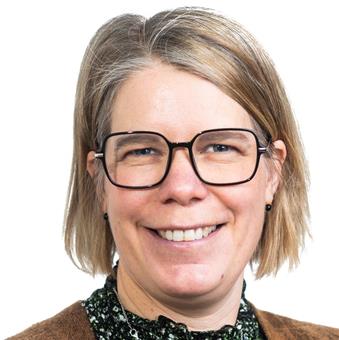Presently there is ongoing urbanization in Sweden as well as in the rest of the world. This creates a need of densification of urban areas, which leads to extensive construction. The change in the urban environment create new demands on mobility of persons and accessibility of goods and a competition about the city capacity. Capacity refers here to space and time available within the urban transport network. Within the area of urban development and logistics we focus on how we can decrease the environmental impact and disturbances of city development projects. As well as how we can utilize the capacity of time and space within the city in such a way that both goods transport and person transport are given the opportunities to work efficiently and effectively.
Examples of areas of interests are:
- How can we include freight transports in traffic modelling?
- What are possible data sources to better estimate transport patterns and impacts of freight transports?
- How can we create a modal change for freight transports to transport modes with available capacity such as waterways?
- How can the utilization of transport capacity, in relation to space and time, increase by seeing transports as a part of a supply chain?
- How can we decrease the negative impact of transport during urban development projects?.
So far, the area has mainly covered, however not only, how to decrease the impact of construction traffic. 20% of all traffic in urban areas in Sweden is construction related. To improve this it is important to work with a systems perspective and to see construction traffic as a natural effect of urban development and thereby the city. Construction traffic competes for capacity with the rest of the traffic at the same time as capacity decreases due to close offs and redirections.
Selection of projects
- MIMIC (Minimizing impact of construction material flows in cities: Innovative Co-Creation) aim to develop support of how to integrate construction logistics in urban planning
- Störningsfri stad (Disturbance free cities) focus on how to visualize the impact on urban traffic of construction planning
- Fossile free construction logistics focus on how the fossile emissions from construction logistics can be decreased through innovative ways of organising logistics in construction projects
- Construction logistics solutions in urban projects is a PhD student project with focus on increasing the knowledge of construction logistics setups.
- MODIG and BlipHope aim to increase the usage of waterways in construction logistics.
Cooperations
The research within this area is conducted in close cooperation with different decision makers such as municipalities, developers, main contractors and third-party logistics providers Ongoing cooperation are: Trafikverket Ostlänken, Norrköpings kommun, Linköpings kommun, Uppsala kommun, Stockholm stad, Stångåstaden, SanktKors, Fastighets AB LE Lundbergs, Hyresbostäder, Almroths, Renall, Wiklunds Åkeri, Wellsec, PEAB, NCC, Ragn-Sells, Boverket, Sjöfartsverket, Norrköpings hamn, Gävle hamn, Luleå hamn, Stockholms hamnar med flera. Vidare samarbetar vi med Chalmers Tekniska Högskola, VTI, RISE och NTNU.
Funding
Swedish Traffic Administration through Triple F, Vinnova innovations for a sustainable society, Swedish Energy Agency, SBUF, JPI Urban ERA-Net (Vinnova), CMB




